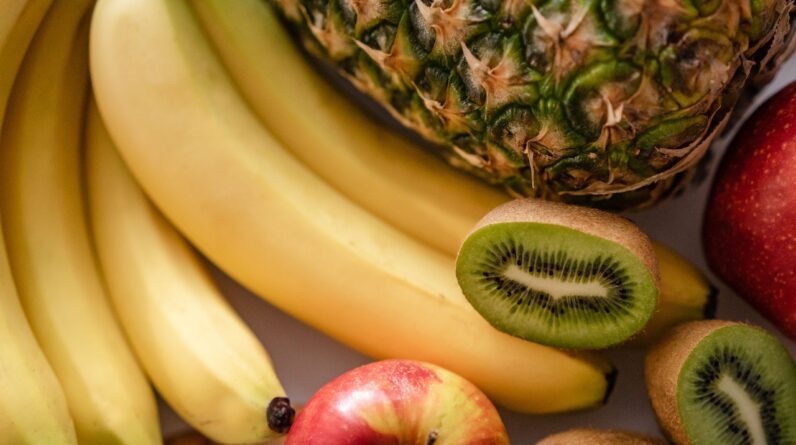
When it comes to weight loss, there is no one-size-fits-all solution. Different diets work for different people, and it can be challenging to find the right one that works for you. In this article, we will be discussing some of the best diets for weight loss.
Understanding the basics of weight loss diets
Before we dive into the specific diets, it’s essential to understand the basics of weight loss diets. The primary factor in weight loss is creating a calorie deficit, meaning you burn more calories than you consume. There are various types of diets that can help you achieve this deficit, including low-carb, low-fat, Mediterranean, intermittent fasting, and plant-based diets.
Low-carb diets for weight loss
Low-carb diets are a popular choice for weight loss. They limit carbohydrates, which results in the body burning fat for energy. Some of the best low-carb diets include the ketogenic diet, Atkins diet, and South Beach diet. While low-carb diets can lead to rapid weight loss, they can also be challenging to sustain over the long term.
Low-fat diets for weight loss
Low-fat diets are another option for weight loss. They restrict fat intake, which can help reduce overall calorie intake. Some of the best low-fat diets include the Ornish diet, the Pritikin diet, and the DASH diet. While low-fat diets can be effective for weight loss, they can also be challenging to sustain over the long term.
Mediterranean diet for weight loss
The Mediterranean diet is a well-known diet that emphasizes whole, unprocessed foods such as fruits, vegetables, whole grains, legumes, and lean proteins. It’s a well-balanced diet that can lead to sustainable weight loss. Some of the best Mediterranean diets for weight loss include the Flexitarian diet and the MIND diet.
Intermittent fasting for weight loss
Intermittent fasting involves periods of fasting followed by periods of eating. It can be done in various ways, including the 16/8 method, the 5:2 diet, and alternate-day fasting. Intermittent fasting can lead to weight loss, improved insulin sensitivity, and reduced inflammation. However, it may not be suitable for everyone, particularly those with a history of eating disorders.
Plant-based diets for weight loss
Plant-based diets emphasize the consumption of fruits, vegetables, whole grains, legumes, nuts, and seeds while limiting or avoiding animal products. Some of the best plant-based diets for weight loss include the vegan diet, the vegetarian diet, and the flexitarian diet. Plant-based diets can improve heart health, lower blood pressure, and aid in weight loss.
Other tips for weight loss
In addition to diet, there are several other factors that can impact weight loss. Exercise is an essential component of any weight loss plan, as it can increase calorie burn and improve overall health. Drinking enough water can also aid in weight loss by promoting feelings of fullness and preventing overeating. Getting enough sleep is crucial for weight loss, as lack of sleep can disrupt hormones that regulate hunger and appetite. Additionally, managing stress levels can help prevent emotional eating and support healthy habits. Finally, tracking progress can provide motivation and accountability on the weight loss journey.
In Conclusion
There is no one-size-fits-all solution when it comes to weight loss diets. Different diets work for different people, and it’s essential to find a sustainable plan that works for you. Some of the best diets for weight loss include low-carb diets, low-fat diets, Mediterranean diets, intermittent fasting, and plant-based diets. Additionally, incorporating regular exercise, drinking enough water, getting enough sleep, managing stress, and tracking progress can support weight loss efforts.
FAQs
- How much weight can I expect to lose on a diet? The amount of weight you can expect to lose on a diet depends on various factors, including your starting weight, diet type, exercise routine, and overall lifestyle. Generally, a safe and sustainable rate of weight loss is 1-2 pounds per week.
- Can I eat carbs and still lose weight? Yes, you can still eat carbs and lose weight. The key is to choose complex, high-fiber carbs, such as whole grains, fruits, and vegetables, and to watch portion sizes.
- Is intermittent fasting safe for everyone? Intermittent fasting may not be safe for everyone, particularly those with a history of eating disorders or who are underweight. It’s important to consult with a healthcare provider before starting an intermittent fasting plan.
- Do I need to exercise to lose weight? While exercise is not necessary for weight loss, it can help increase calorie burn and improve overall health. It’s recommended to incorporate regular exercise into your weight loss plan for optimal results.
- Can stress impact weight loss? Yes, stress can impact weight loss by disrupting hormones that regulate hunger and appetite. It’s important to manage stress levels as part of a comprehensive weight loss plan.







